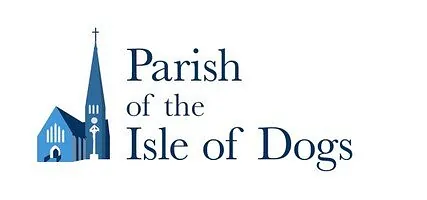07/08/2024 0 Comments
The Diaconate - the Order of Deacons
The Diaconate - the Order of Deacons
# News

The Diaconate - the Order of Deacons
In the Common Worship Ordination of Deacons, the Bishop addresses the congregation in the following words:
Deacons are called to work with the Bishop and the priests with whom they serve as heralds of Christ’s kingdom. They are to proclaim the gospel in word and deed, as agents of God’s purposes of love. They are to serve the community in which they are set, bringing to the Church the needs and hopes of all the people. They are to work with their fellow members in searching out the poor and weak, the sick and lonely and those who are oppressed and powerless, reaching into the forgotten corners of the world that the love of God may be made visible.
Deacons share in the pastoral ministry of the Church and in leading God’s people in worship. They preach the word and bring the needs of the world before the Church in intercession. They accompany those searching for faith and bring them to baptism. They assist in administering the sacraments; they distribute communion and minister to the sick and housebound.
Deacons are to seek nourishment from the Scriptures; they are to study them with God’s people that the whole Church may be equipped to live out the gospel in the world. They are to be faithful in prayer, expectant and watchful for the signs of God’s presence, as he reveals his kingdom among us.
The report of the Church of England’s Faith and Order Advisory Group The Mission and Ministry of the Whole Church (2007) has this to say about the work and role of a deacon:
The first thing to say about deacons, in the light of the pivotal use of the terms diakonia and diakonos in the New Testament, especially by St Paul, is that deacons, in their ordination, receive the fundamental commissioning of Christ to be ministers (diakonoi) of the gospel. St Ignatius of Antioch calls them ‘deacons of the mysteries of Jesus Christ’ (cf. 1 Corinthians 4.1). They are sent by Christ, through the Church, as bearers of the Good News to the world and in this role (as the classic Anglican Ordinal of 1550/1662 particularly emphasizes) they have a special compassionate care for the needs of the sick, the lonely and the oppressed. Together with all Christians and all ministers, theirs is a life of compassionate service in obedience to Christ’s command and example – service primarily of Christ and under his authority, secondarily of those who are Christ’s and to whom he imparts his authority.
Deacons, like priests and bishops − and lay ministers too, for that matter − are related to the word, the sacraments and pastoral care: they receive the full ministry of the gospel. But they have an assisting, not a presiding role in relation to these three central tasks of the Church’s mission. Deacons assist the priest and the bishop and carry out the duties deputed to them in relation to this mandate. They preach, teach and give instruction in the faith. They lead the people in worship and assist in the celebration of the sacraments by bringing candidates, whom they have sought out and prepared, to baptism and (as the 1550/1662 Ordinal says), baptising them in the absence of the priest, and by assisting the president in the Eucharistic liturgy and leading the people in their participation.
Deacons are ministers of pastoral care on behalf of bishop and priest; they carry Christ’s compassion to the forgotten corners of society and ensure that the needy receive practical help. Through their role in the liturgy, deacons bring the concerns and petitions of the wider community, within which they minister day by day, to the heart of the Church’s worship, in order that these concerns may be laid upon the altar and placed at the foot of the cross (Common Worship spells out the role that it is appropriate for deacons to take at the Eucharist). Deacons can cross boundaries, from a parish base, into the ‘fresh expressions’ dimension of the mixed economy church. Deacons thus share in the apostolic ministry, being sent by Christ, through the Church as missionaries to carry forward his saving work.
The deacon is a person on a mission, a messenger or ambassador – making connections between liturgy and pastoral need, building bridges between the life of the Church and those who are not yet within it. The ministry of the deacon says something important about the nature of the Church as the Body of Christ and is indeed a sign of what the whole Church essentially is and is called to become more and more.
Picking up the language of the House of Bishops’ report on Eucharistic Presidency (1997), we can say that the diaconal ministry, like the ministry of the priest and the bishop, ‘promotes, releases and clarifies’ what is true of the Church as such. The ordination of a deacon may be regarded, therefore, as an ecclesial sign – a visible sign of what is true of the Church, of its essential calling, and is carried out in many ways by all the faithful and particularly by those who are called to a recognized ministry, lay as well as ordained.
In ordination the deacon receives a distinctive identity from God through the Church. That identity relates to the kingdom or reign of God that has dawned upon the world in the mission of Jesus Christ, but remains to be fulfilled, and it points to the role of the Church in the coming of God’s kingly reign.


Comments